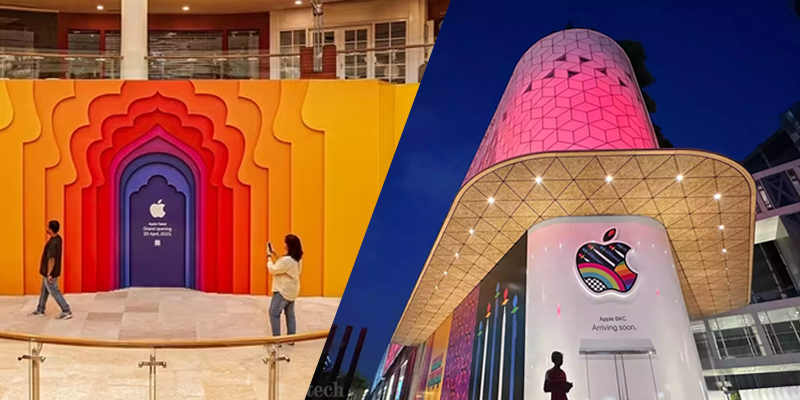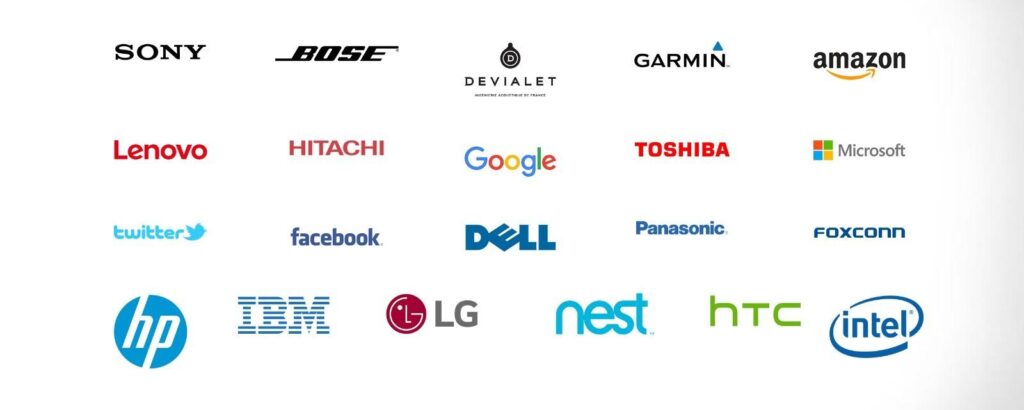Business
‘Hello Mumbai!’: Apple BKC to be India’s first Apple store
Published
2 years agoon

It’s been a long, hard road for Apple to be able to open its own retail stores in India. Now, after years of anticipation, the first-ever official Apple Store in India – Apple BKC – is set to open on April 18th in Mumbai, followed by a launch of the Delhi store on the 20th, marking a significant milestone for the tech giant and its fans in India.
The company teased the opening of its retail outlet in a brief statement, saying it was preparing to greet customers in the financial and commercial hub of Mumbai. Its previous plan to open a store in the country in 2021 was derailed by the coronavirus pandemic. The company released a photograph of its newboarded-upstorefront, located at Jio World Drive Mall, a property owned by Reliance Industries, the conglomerate of Indian tycoon Mukesh Ambani.
In a bid to boost the manufacturing sector in the country, the Indian Government prohibited multinational retailers like Apple from opening stores in the nation unless at least 30% of their raw materials came from within the nation, forcing them to rely on local partners.
Apple has been involved in tough negotiations with the government for many years on this issue, but it’s only after it significantly increased iPhone assembly within India that it was finally granted the necessary permits.
CEO Tim Cook has previously pointed to the importance of starting its own retail network in the country, saying, “I don’t want somebody else to run the brand for us.”
Manufacturing base
Recently, Apple has been ramping up manufacturing in India.
According to Counterpoint Research, in 2022, the shipment volumes of iPhones manufactured in India increased by 65% year on year. In addition, the value of iPhones rose by 162%, reflecting a large increase in the company’s exports from the nation last year.
Apple first began making iPhones there in 2017. But in recent months, it has expanded production after suffering severe supply chain snags in mainland China, which accounts for the bulk of its smartphone manufacturing.
What makes it a big deal? Let’s take a look.
1- Enhanced customer experience
One of the primary reasons Apple fans in India are excited about the opening of Apple’s first retail store is the enhanced customer experience it will offer. Apple’s retail stores are known for their modern design, interactive displays, and sales representatives who provide personalised assistance to customers. With Apple’s entry into the Indian retail market, customers will finally have access to a premium retail experience that was previously unavailable. There is no commitment to buy, and it is totally fine for users to just walk in and experience the products.
2- Increased accessibility
Until now, Apple products in India were only available through third-party resellers and e-commerce websites. While these channels offer convenience, they often lack the sophisticated customer experience that Apple is known for. With the opening of Apple’s first retail store, customers in India will have access to the entire range of Apple products and services, all under one roof. This will make it easier for customers to try out products, get personalised recommendations, and make purchases.
3- Genius Bar
Genius Bar is a dedicated area within Apple stores to provide technical support to products that are both under warranty and out of warranty. There is a dearth of genuine Apple centres in India, and most of the repair is handled by Apple Authorized service centres. The launch of official Apple stores in the country will enable customers to get full replacements for Apple Care-covered products or service out of warranty products to Apple’s high standards.
4- Distinct design and ambience
Most Apple stores are located at strategic locations near important landmarks. They are carefully crafted to have a distinct design, yet all have the familiar Apple Store feel. They are usually spacious, have free high-speed Wi-Fi, and offer a good ambience to anyone visiting the store. This look & feel has been consistently replicated across countries, while there might be some cultural differences from one country to another.
5- Ample inventory
Apple stores generally tend to have ample amount of inventory for most of its popular products. While this might be an issue during major product launches, company owned retail stores generally have plenty of product inventory.
6- Boost to India’s retail industry
Apple’s entry into the Indian retail market is a significant boost to the country’s retail industry. India is one of the fastest-growing retail markets globally, and Apple’s decision to open retail stores in India is a testament to the country’s potential as a retail destination. The opening of Apple’s first retail store is expected to generate job opportunities and boost the local economy.
7- Focus on local needs
Apple has a reputation for creating products that are designed with the user in mind. With the opening of its first retail store in India, Apple is expected to focus on local needs and preferences. This could mean introducing products and services that are tailored to the Indian market, as well as offering localised customer support and services.
8- An investment in India’s future
Apple’s decision to open retail stores in India is a significant investment in the country’s future. India is a crucial market for Apple, with a growing population of tech-savvy consumers who are willing to invest in premium products. By establishing a presence in India’s retail market, Apple is signaling its commitment to the country’s growth and development.
22 ‘competing brands’ banned
Ahead of the official launch, which is also rumored to be attended by Apple CEO Tim Cook, the retail store’s lease-related details have surfaced online. As per the agreement, Apple banned ‘22 competing brands’ from an “exclusive zone” around the store. These brands include Amazon, Facebook, Google, and Twitter.
The iPhone maker used a clause in the mall lease agreement to ban these brands not just from opening stores in the zone, but even from buying ad space in its vicinity.
In a bid to limit competition for HomeKit products, Nest is also excluded. Garmin is listed as a smartwatch competitor, especially for the Apple Watch Ultra. Bose and Devialet are also on the list, suggesting that the corporation does not want any local competition for HomePod or Beats audio products.
Strangely enough, Foxconn, who assembles Apple’s majority of the iPhones, is one of the brands that are prohibited under the deal. Twitter is another interesting one, however again Apple might just see the company’s erratic behaviour as harmful from a PR perspective.
It’s interesting to note that the list only names 21 of the 22 brands, leaving the final one a mystery, but the missing brand could be Samsung.

According to the report, it’s usual for “anchor stores,” or major brands that are likely to draw customers to a mall, to insist on eliminating direct competitors. However, a retail consultant claims that such a long list spanning numerous industries is by no means typical.
One contributing factor to Apple’s stance may be the long wait and effort it took to open its first retail stores in the country. Having finally achieved its goal, Apple likely wants to maximise the return on its investment.
The opening of Apple’s first retail store in Mumbai and Delhi is a significant milestone for the tech giant and its fans in India. It marks a new chapter in Apple’s journey in India and is expected to boost the country’s retail industry.
You may like
-


The Preliminary Findings of Air India AI171’s Tragic Crash Paint a Disturbing Picture
-


Japan’s Petabit Internet Is Faster Than You can Possibly Imagine
-


Cursed or Collectible? Labubu Dolls Likened to Ancient Demon
-


Elon Musk Launches ‘America Party’, But is it A Political Pipe Dream?
-


IPL 2025 Suspended As India-Pakistan Tensions Escalate
-


“We Will Make Them Pay If…”: Pakistan’s Aggressive Threats Spark Regional Tensions


